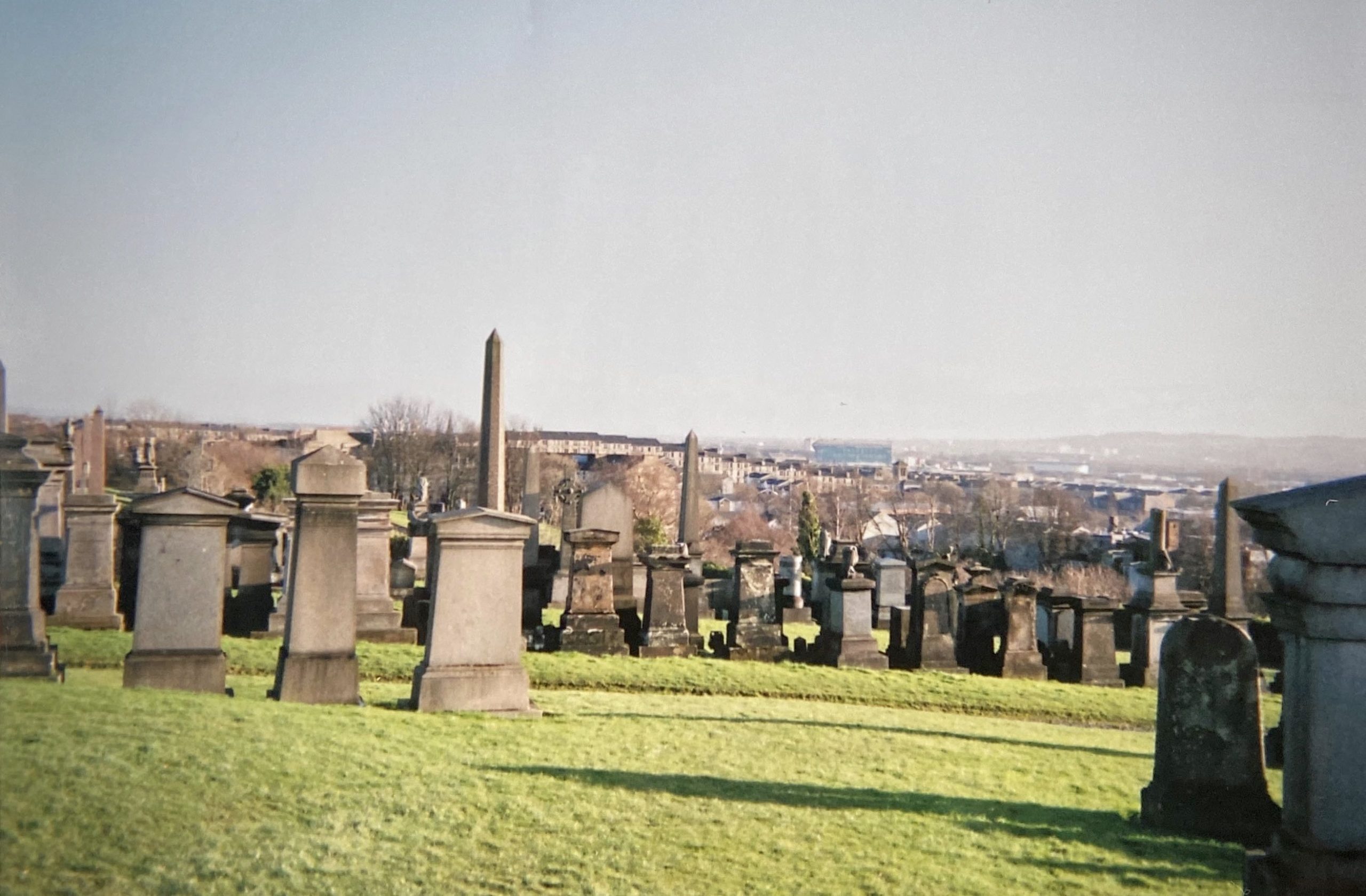[Written by Lynsay Holmes (she/her)]
[Image Credits: Lynsay Holmes]
Content warning: Contains discussion of classism.
Series caption: Working-class voices often go unheard, especially at university. In light of our final theme, we have launched a 3-part series exploring the effects of class on our perceptions of “Home”. The series projects working-class voices from different areas: Scotland, the North-West, and East Anglia. Our writers share their experiences of growing up in working-class communities, rejecting common stereotypes of these environments as miserable and dangerous, in favour of exploring the idea of working-class homes as places of trust, love and solidarity. Most importantly, all the pieces are written on their own terms.
I grew up between social classes, spending half my life in Dennistoun and half my life in Hyndland. It is a very complicated existence and adult reflections on the effects of class in childhood have, for me, presented the impact it can have on your family relationships and sense of self.
My mum is working-class, born and raised in Dennistoun with a thick Glaswegian accent. Dennistoun was not always the gentrified “place to be” it is now. While I lived in Dennistoun, I also attended school in the West End – this was a struggle. As a child I didn’t have the capacity to understand class conflict as I do now, but I knew that the people I socialised with at school were very different from the kids I played with in Dennistoun. I soon gathered that the areas I was commuting between were not compatible and one needed to stay secret from the other. In primary school, I found it uncomfortable to answer basic questions like: “where do you live?” and always gave my dad’s address on school forms. I was so ashamed of my maternal family picking me up from school that I told my grandad to come later than the actual pick up time so people wouldn’t see him because he dressed “poor”. However, as much as I tried to conceal my working-class family, my mum’s class was unconcealable. A boy from my school later told me, “we all knew she was working-class; we could hear it in her voice”. Upon hearing this I was mortified; I really can’t express the shame I felt. I look back on this now as an adult and it seems insane that I was made to feel like that, but this was and still is the reality.
Being between classes can have devastating effects on how you view your loved ones: I othered my own mother due to her working-class status, preferring to estrange myself from “her” accent and habits, which were not desirable and therefore not “mine”. I took on my dad’s middle-class way of doing things. When people say to me: “Oh but you don’t sound like you’re from Glasgow” trying to make a jab that I’m “posh”, what they really point out is that I have consciously made the effort to not sound Glaswegian because I was ashamed and fearful of sounding working-class like my mum; I remember my dad literally telling me that I’ll “get on better in life” if I don’t talk like that.
It breaks my heart that these social perceptions made me blind for so long to the love and generosity I received in my childhood in Dennistoun. It is common to think that a working-class life is full of hardship, and obviously if you lack financial security, life is harder, but the working-class should not be seen through a one-colour hardship lens. Growing up in Dennistoun, I experienced so much fun, excitement and love from a truly genuine community. When it was sunny one of my gran’s neighbours would always give me an ice lolly, I knew every single old lady who lived on the street as I was always dancing and singing for them, and playing rounders on the hill until sunset was the highlight of my childhood. In a community like that, where people are living from week to week, community and sharing are an essential need as everyone works together to help each other get through. If you need anything, you can just knock on a neighbour’s door. My gran takes a lot of pride in her community, always proclaiming, “we don’t have much, but we’d give you our last.”
However, from my encounters with richer communities I’ve seen that there can often be an individualist mindset based on privilege. People who have the financial security to never go without don’t need community or sharing. In our western, capitalist portrait of what “success” is, we seem to have glamorised removing ourselves from community as being self-sufficient—the goal to strive for. Losing sight of our interdependence as human beings has allowed competition to displace community. I feel space also plays a role in this disconnect: Where my gran lives, in a tenement flat, it is intimate living. Naturally, if you share a stairwell you will bump into people. However, if you live in a detached house in a “gated community” you are spatially distanced from others and the other.
Dennistoun is not seen like this anymore, but when GU kids want a goth day out and go to the Necropolis, I can see my gran’s tenement just half a mile away. It’s difficult to articulate how I feel about seeing more privileged folks move into the area, as this will eventually displace people who are from there, but at the same time I am part of those privileged people, I know them, so how can I judge them? I’ve always felt conflicted about where I truly belong as I can understand “both sides” but have often felt that no one can really understand me. Despite the messy class confusion which I’ve grown up in, I take solace in knowing that Glasgow and all its parts are my home. I feel blessed that in a world of diaspora, I have roots and a sense of place.

